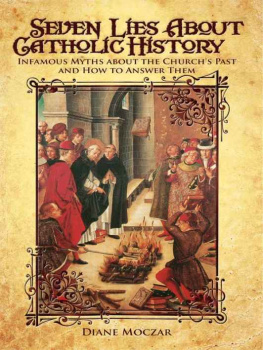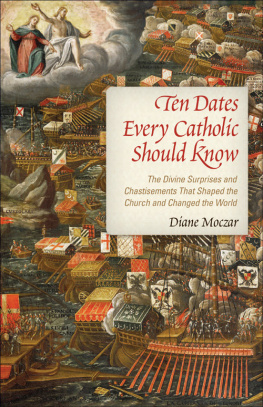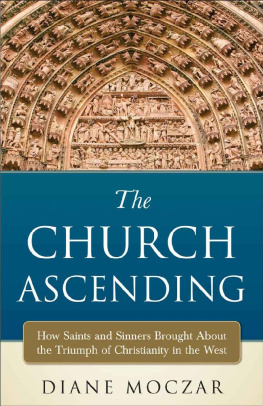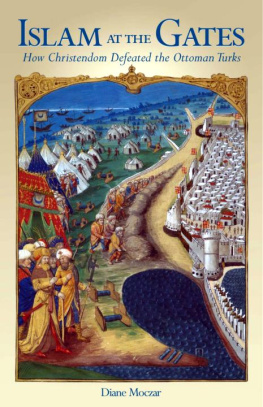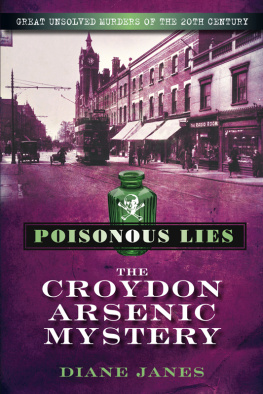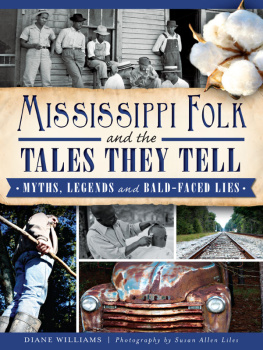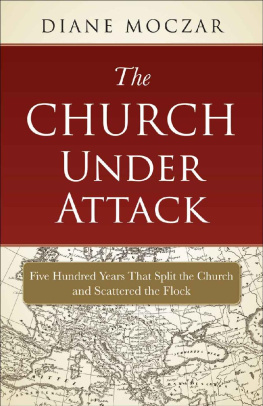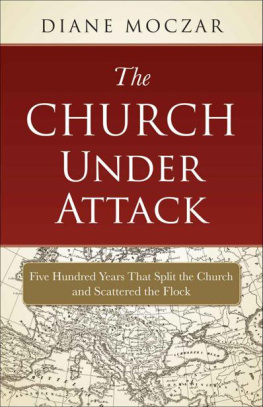Diane Moczar - Seven Lies About Catholic History
Here you can read online Diane Moczar - Seven Lies About Catholic History full text of the book (entire story) in english for free. Download pdf and epub, get meaning, cover and reviews about this ebook. year: 2010, publisher: TAN Books, genre: Religion. Description of the work, (preface) as well as reviews are available. Best literature library LitArk.com created for fans of good reading and offers a wide selection of genres:
Romance novel
Science fiction
Adventure
Detective
Science
History
Home and family
Prose
Art
Politics
Computer
Non-fiction
Religion
Business
Children
Humor
Choose a favorite category and find really read worthwhile books. Enjoy immersion in the world of imagination, feel the emotions of the characters or learn something new for yourself, make an fascinating discovery.
- Book:Seven Lies About Catholic History
- Author:
- Publisher:TAN Books
- Genre:
- Year:2010
- Rating:3 / 5
- Favourites:Add to favourites
- Your mark:
- 60
- 1
- 2
- 3
- 4
- 5
Seven Lies About Catholic History: summary, description and annotation
We offer to read an annotation, description, summary or preface (depends on what the author of the book "Seven Lies About Catholic History" wrote himself). If you haven't found the necessary information about the book — write in the comments, we will try to find it.
Seven Lies About Catholic History — read online for free the complete book (whole text) full work
Below is the text of the book, divided by pages. System saving the place of the last page read, allows you to conveniently read the book "Seven Lies About Catholic History" online for free, without having to search again every time where you left off. Put a bookmark, and you can go to the page where you finished reading at any time.
Font size:
Interval:
Bookmark:
C ATHOLIC H ISTORY
C ATHOLIC H ISTORY
C HURCHS P AST
AND H OW TO A NSWER T HEM
Charlotte, North Carolina
2010 Diane Moczar
All rights reserved. With the exception of short excerpts used in articles and critical reviews, no part of this work may be reproduced, transmitted, or stored in any form whatsoever, printed or electronic, without the prior written permission of the publisher.
ISBN: 978-0-89555-906-7
Cover design by Tony Pro.
Cover image: Spanish painting from the 1400s by Pedro Berruguete showing the miracle of Fanjeaux. According to the Libellus of Jordan of Saxony, the books of the Cathars and those of the Catholics were subjected to trial by fire before Saint Dominic. The Catholic books were rejected three times by the flames. Scanned from a history book. Wikimedia Commons.
Printed and bound in the United States of America.
Charlotte, North Carolina
2010
To Dr. William A. Donahue, founder and president of the Catholic League for Religious and Civil Rights, a champion debunker of both historical and contemporary lies about the Church. Excellent articles in Catalyst, the Leagues monthly publication, have dealt with some of the lies included in this book, as well as those concerning Pope Pius XII.
I wish to express my grateful thanks to Todd Aglialoro, my editor, for his professional guidance; I could not have completed this book without it. All those little conflicts over content, fights about footnotes, and tiffs about titles are now completely forgotten. Or almost.

L ies about history are told, written, and passed down through generations for a variety of reasons. States create lies about rival states; an example of this is the Black Legend, invented mainly by England in the early modern period to blacken the reputation of its great rival, Spain. Englands motives were political, economic (Spain had struck it rich in the New World while England had not), and religious (the Spanish king was the Catholic champion of Europe, whereas English monarchs were supporting the Protestant cause). More recently, anti-Catholic and antilegitimist authors have told lies about the wartime regimes of Marshal Ptain in France and Franco in Spain. Communist writers lie about capitalism, capitalists about workers, and Renaissance historians about the Middle Ages. There can also be a real temptation to distort history for reasons of patriotism, or to cover up the failings of ones own party or religious leaders. (Catholics are not immune to this temptation.)
Historical lies, in short, are not necessarily told from religious motives, although religion is often one reason sometimes the most important onefor their creation. In this book we will examine seven lies that do originate from religious motives and which have the Catholic Church as their target: either directlyas with the Inquisition, the Galileo case, the Churchs alleged opposition to progress, the putative corruption of the Church before the Reformation, and the postwar attacks on Pope Pius XIIor indirectly, as with the Black Legend, the Crusades, and the Middle Ages.
In cases in which historical lies target the Church directly or exclusively, there are, again, a variety of specific motives for the attacks. Atheists are always happy to find some issue with which to discredit the Church, and ex-Catholics bearing a grudge against their former spiritual mother are often both rabid liars and prolific writers.
The most thoroughgoing and persistent religious historical lie seems to be the oddly unhistorical view that most Protestants take of pre-Reformation history. They posit an early Christian community of believers with a very loose ecclesiastical organization and no fixed hierarchical structure, only a couple of sacraments, and a few doctrines that fit whichever sect they belong to. This happy situation lasted, in their minds, until the Emperor Constantine stopped the persecutions and legitimized Christianity. Constantine supposedly reshaped the structure and doctrines of the Church by meddling in ecclesiastical affairs, and this Church-State
coziness changed Roman Christianity into what became the bad Catholic Church we have todaywhile the true believers went underground in order to practice their pure and simple faith, only emerging into daylight with the dawn of the Reformation.
This scenario is incredible (in the literal sense) to anyone familiar with the mass of available early Christian documents and the history of the first three centuries. The myth survives mainly due to historical ignorance, as well as ideology, and the reason I do not deal with it directly in this book is that the cure for it is an entire course on early Western Civilization. Portions of this mythical history, however, will turn up in several of the following chapters.

Y ou have undoubtedly come across some of the seven scenarios discussed in this book (and probably many more), all of which present Catholic history in an unfavorable light. Confronted with these assaults on the Catholic past, you may have recalled the spate of public apologies issued by some of the recent popes and decided that we Catholics have much to be ashamed of in the behavior of our ancestors. It might be better, perhaps you found yourself thinking, if we let all those dark centuries bury themselves and focused instead on an upbeat and non-confrontational future.
The trouble with this attitude, other than the fact that it invokes yet another historical lie, is that the controversies do not go away. The rest of the worldhistory professors, textbook writers, filmmakers, media figures, Protestant apologists, anyone with an axe to grind against the Catholic Churchwill not let us simply erase our past and go on. They continue to rake up their version of Catholic history, ad infinitum , and wield it with the intent of harming the Church. If we refuse to learn the reality of our history, we are reduced to twiddling our thumbs and looking sheepish when someone brings up the Inquisition, for example. When we do not know enough to refute the lies, we reinforce them by defaultor we secretly buy into them ourselves.
We would do much better to confront the past of our Mother the Church objectively. History is Gods acting in the world, most immediately through His own Church. Insofar as His fallible instruments are men, they can act ineffectively, stupidly, or maliciously, and thus affect history negatively. It very rarely happens, however, that the drama of Catholic history is performed exclusively by dumb, inept, or malicious Catholics. At critical moments, in fact, the actors are often saintsas we shall find in all seven historical periods that we shall examine.
We must keep in mind that although the Father of Lies is behind all lies, either directly or indirectly, any given purveyor of a lie may be completely unconscious that he is falsifying the historical record. There have certainly been rabidly anti-Catholic writers who deliberately distorted history to put Catholics and their Church in a bad light, but not all historical distortion is deliberate. For example, a historian may have a deep antipathy for monarchyconsidered the most perfect and natural form of government during the Christian centuriesand therefore find it difficult to deal objectively with the historical manifestations of monarchy. The same goes for more recent authoritarian Catholic governments, such as that of Salazar in Portugal. An economic historian sold on capitalism might find more to criticize in the guild system than would a less-biased researcher. And what feminists find to criticize in the Catholic centuries would take far too much space to go into here.
Font size:
Interval:
Bookmark:
Similar books «Seven Lies About Catholic History»
Look at similar books to Seven Lies About Catholic History. We have selected literature similar in name and meaning in the hope of providing readers with more options to find new, interesting, not yet read works.
Discussion, reviews of the book Seven Lies About Catholic History and just readers' own opinions. Leave your comments, write what you think about the work, its meaning or the main characters. Specify what exactly you liked and what you didn't like, and why you think so.

